From a small family crew to one of Virginia’s most respected civil contractors, Liesfeld’s story is built on hard work, lasting relationships, and a reputation earned one job at a time. For over 50 years, we’ve delivered with integrity—and we continue to grow with the same commitment to excellence that’s defined our name for generations.
The Liesfeld family’s history in Richmond dates back to the 1850s, with generations engaged in farming, dairy, merchant businesses, logging, sawmills, development, and construction. These ventures laid the groundwork for a business mindset built on work ethic, adaptability, and strong community ties. Although Joseph E. Liesfeld, Sr. was never formally an officer of the company, he played a pivotal role in its formation—mentoring his sons and shaping the values that still guide Liesfeld Contractor today.
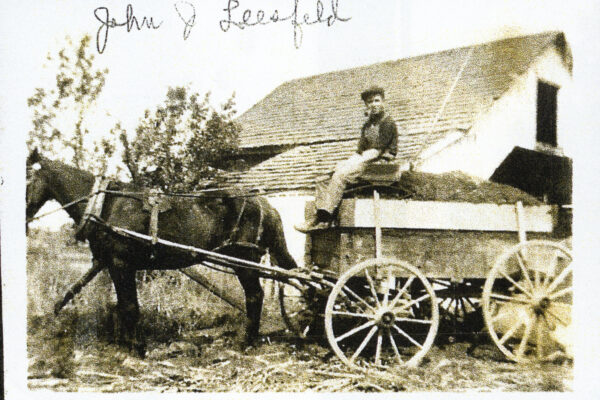
The 1970s marked the official formation of Liesfeld Contractor, as Joseph E. Liesfeld, Jr. took the family’s legacy of hard work and turned it into a growing sitework business. One of the company’s earliest and most defining projects was assisting with cleanup efforts following the devastating 1972 hurricane in Richmond—an experience that taught valuable lessons in urgency, adaptability, and service to the community. These early challenges shaped the company’s foundation and instilled the grit, accountability, and trust-based approach that Liesfeld would carry into the decades ahead.
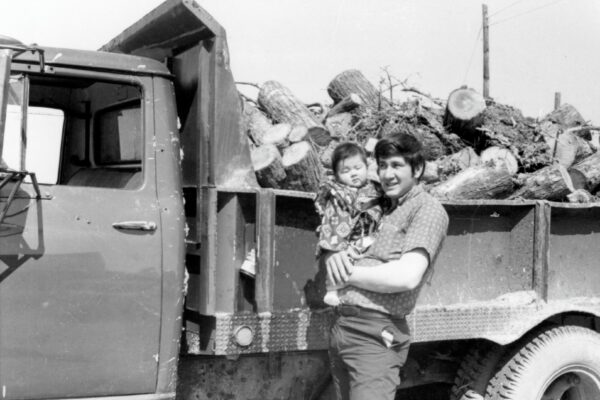
The 1980s marked Liesfeld’s emergence as a serious force in the Central Virginia sitework market. With limited name recognition but growing word-of-mouth credibility, the company earned and executed high-profile projects such as the Virginia Museum of Fine Arts West Wing Addition, the Ethyl Corporation Headquarters, the Bon Air Post Office, and the Greyhound Bus Terminal. These jobs proved Liesfeld’s ability to handle large-scale, high-visibility sites—cementing its reputation for reliability, performance, and client trust.

Liesfeld entered the 1990s navigating economic uncertainty, shifting its focus to public-sector work to remain steady through the downturn. Key projects during this time included the Virginia State Penitentiary demolition, New Kent Regional Jail, and Richmond Water Treatment Plant. As the economy rebounded, Liesfeld returned to commercial development with major jobs for Walmart, the Richmond Federal Reserve Bank, and the Motorola Production Facility—solidifying its reputation for large-scale, high-discipline sitework across both public and private sectors. This decade also marked the founding of Gillies Creek, a materials recycling division that would grow into a key resource for both internal operations and the broader Richmond construction market.

The 2000s brought rapid growth as Liesfeld took on increasingly complex and high-profile projects, including Capital One’s 354-acre campus, Stony Point Fashion Park, and the Rolls Royce Production Facility. The company expanded into high-security and government work as well—supporting projects for Philip Morris, Richmond Raceway, and military installations at Ft. AP Hill, Ft. Eustis, and Ft. Lee. When the Great Recession hit, Liesfeld pivoted strategically, leaning into public-sector and mission-critical work that reinforced the company’s ability to adapt, endure, and lead through change. During this period, Liesfeld also launched GreenWing Mitigation, expanding its ability to provide integrated solutions for developers by offering stream, wetland, and nutrient credits for permitted land development.
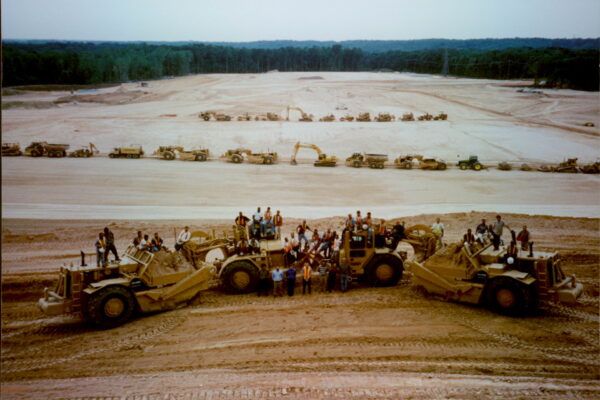
In the 2010s, Liesfeld cemented its role as a trusted partner for large-scale, fast-paced, and technically demanding projects. The company played a key role in delivering critical infrastructure for the Henrico Data Center, the Amazon U.S. East Solar Farm, Craney Island, Dulles International Airport Expansion, and the AWG Training Complex, among many others. These projects highlighted Liesfeld’s ability to manage aggressive schedules, coordinate across multiple stakeholders, and perform under the pressures of national-scale construction programs.
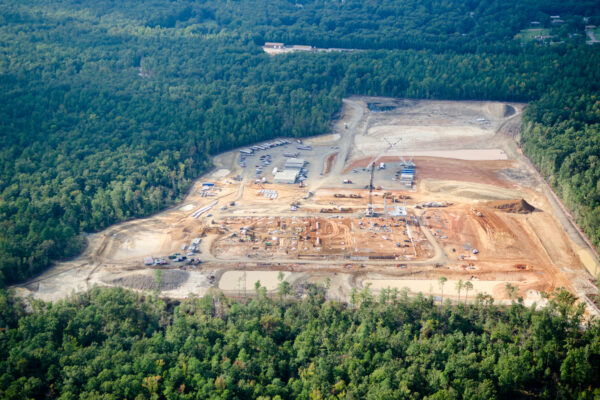
In the 2020s, Liesfeld emerged as a key partner in the delivery of data center and hyperscale infrastructure projects across Central Virginia. The company has played a leading role in multi-phase campus programs for national tech clients, combining advanced planning, duct bank coordination, and fast-to-market delivery. As demand for utility, energy, and technology infrastructure continues to rise, Liesfeld’s ability to integrate technical complexity with disciplined execution has reinforced its position as one of Virginia’s most trusted civil contractors.
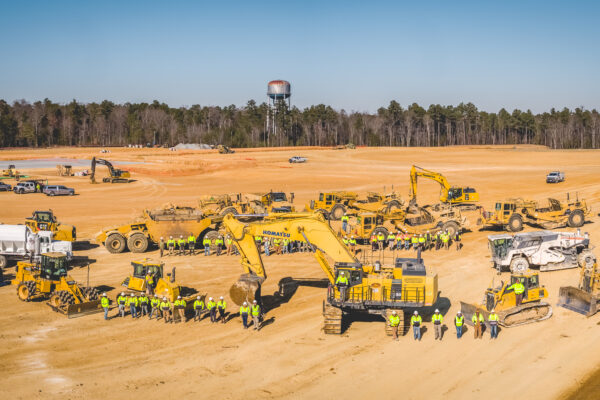
Our responsibility now is to honor the legacy while continuing to evolve—leading with trust, building for the future, and staying grounded in who we are.
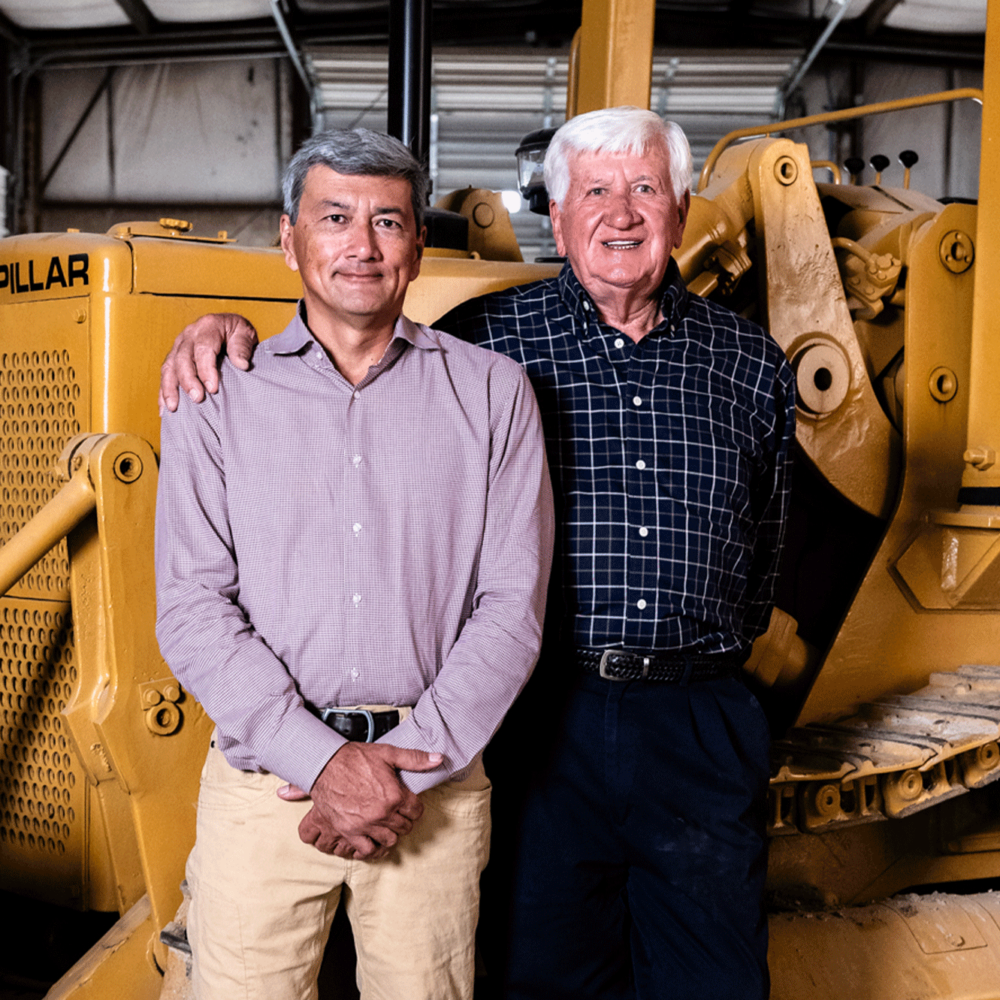
The Liesfeld Legacy Honorees recognize individuals whose dedication, leadership, and character left a lasting mark on the company. Chosen by the Liesfeld family, these team members helped shape the culture, standards, and success that define Liesfeld Contractor today – many of which continue to stay involved, offering valuable insight and contributing to the company to this day.
Ray Waddy was Liesfeld’s first formal estimator and project manager, bringing a new level of sophistication and structure to how the company approached bidding and project delivery. His mentorship helped shape several of today’s business leaders, and many of his trademark sayings still guide how Liesfeld estimates and manages work. Ray’s influence helped elevate the company’s reputation, and played a key role in establishing Liesfeld as a sitework leader in the Richmond region.
Chuck Sheehy served as Liesfeld’s longtime Chief Financial Officer and later as a trusted advisor to the Liesfeld family and company leadership. He helped build the company’s internal structure—shaping its financial systems, safety programs, and business practices with professionalism and foresight. Chuck spearheaded major capital initiatives, including a multi-year effort to modernize the company’s fleet into one of the finest in the Richmond region. A passionate advocate for civic responsibility, he championed philanthropic efforts such as the Arthur Ashe Monument and the Richmond Slave Burial Ground restoration—ensuring Liesfeld led not only in business, but in community impact. Today, Chuck remains a close friend, advisor, and mentor to the company’s senior leadership.
Tommy Wilson served as Liesfeld’s General Superintendent for over three decades, guiding the company’s field operations with unmatched precision, planning, and leadership. Known as the “general of the field,” Tommy played a critical role in building Liesfeld’s reputation for operational excellence across the Richmond region. He mentored a generation of future leaders and helped elevate the company’s standards of efficiency and professionalism. Widely regarded as one of the most accomplished general superintendents in Virginia’s heavy civil industry, Tommy’s legacy lives on in every project that bears his fingerprints. Today, Tommy remains a close friend, advisor, and mentor to the company’s aspiring leaders.
Skeeter Grady was Liesfeld’s first formal foreman and a key figure in laying the company’s operational foundation. His broad skill set and deep field knowledge helped guide the transition from clearing lots to full-scale sitework. Known for his ability to do more with less, Skeeter was instrumental during the company’s early years—delivering results through grit, adaptability, and field leadership when resources were limited. His legacy lives on in the standards he helped set and the work ethic he embodied.
Harvey Hairfield was a brilliant and dependable surveyor who played a pivotal role in establishing Liesfeld’s in-house survey department—a major step forward for the company during a key period of growth. His old-school, relentless determination and expertise helped keep projects moving efficiently in the field, and his work laid the technical foundation for what would become a modern, technology-driven survey team. Harvey’s legacy lives on in the systems he helped build and the precision he brought to every job.
As Liesfeld’s own “MacGyver” of the Service Department, Carol had an uncanny ability to fix just about anything with whatever tools or parts were lying around early on. Whether it was a broken-down loader in the field or a finicky motor back at the shop, Carol always found a way to get it up and running — often with little more than some wire, a wrench, and a whole lot of know-how. His creativity and mechanical instincts kept the fleet moving and projects on track, even when resources were limited. Carol wasn’t just a mechanic — he was a problem-solver, a craftsman, and a cornerstone of the department. His legacy is one of grit, cleverness, and a deep pride in getting the job done, no matter the odds. To this day, Carol continues to play a vital role in the department, working in fabrication, welding, and mechanical repair. Beyond his own hands-on work, he also takes the time to mentor the next generation of mechanics, sharing his knowledge, experience, and trademark problem-solving mindset.
Though never an employee of Liesfeld Contractor, Earl Liesfeld played a foundational role in the company’s formation and culture. As the father of founder Joseph E. Liesfeld, Jr., Earl served as a mentor and advisor—drawing on his own canny, depression-era experience running logging, sawmill, and repair businesses. His mechanical ingenuity, problem-solving mindset, and custom-built equipment solutions were critical to doing more with less in the company’s early years. Earl’s lasting influence is seen in Liesfeld’s continued focus on clearing and hands-on operations—core values that still guide the family and business today.